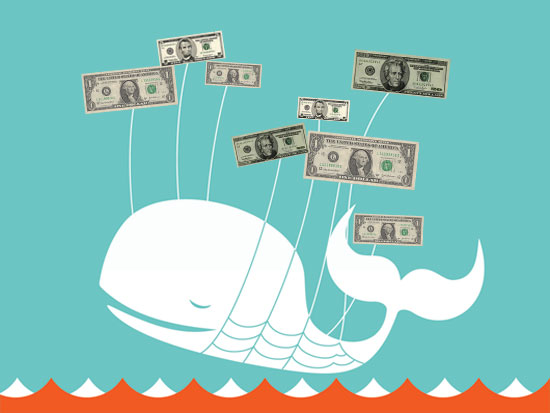By Doug Stephens
It was only a matter of time before marketers developed a work-around to avoid the heavy lifting of great social media.  Companies like Amex and now retailers such as Express are now incentivizing consumers to tweet about their brands or specific offers by providing points or rewards each time they do.
Companies like Amex and now retailers such as Express are now incentivizing consumers to tweet about their brands or specific offers by providing points or rewards each time they do.
This isn’t “social media” – it’s advertising
What these companies are missing (or perhaps simply ignoring) is that the magic of genuine word-of-mouth is that it’s unsolicited. It’s not advertising, it’s earned media in the truest sense. Paying customers to talk about you online isn’t really any different than paying a newspaper or TV station to talk about you – in fact it could be considered more annoying, given the inherent lack of transparency involved. It’s not genuine. It’s not real.
The truth is that rewarding tweets really only transfers paid media dollars from one channel to another. It’s not an alternative to advertising; it’s just a new way of paying for it.
Is this social cyanide?
Furthermore, the success of programs like these depends completely on capitalizing on the size of customers’ social networks. Without the network multiplier, there’s no program. So, one has to wonder what happens if participation in the program actually shrinks the customer’s network? In other words, what happens when people begin to un-follow blatant rewards-tweeters? I, for one, wouldn’t hesitate to un-follow any connection on Twitter who was tweeting purely for points or rewards, and I doubt I’d be alone in that sentiment. So, if the very activity that’s intended to fuel the program ends up shrinking its reach and effectiveness what’s the point?
It’s a C+ World
I can’t help but view programs like this as little more than a means by which average brands (that really don’t deserve our attention) can squeak by. They’re no different than the kid in school who pays someone to write their essay for them – they may pass, but they’re no smarter or better for it. They’re still below average in the end.
Instead of creating something truly worthy of attention, brands that incentivize social mentions are choosing to fake it, to transfer the effort to their customers and to avoid the hard work of differentiating in a meaningful way. They’d rather create average products and pay people to talk about them than deliver something truly remarkable.
The truth however, is that the days of effectively buying consumer attention are rapidly coming to an end. It’s simply no longer tenable in a world where we ingest 34 gigabytes (100,000 words) of data per day. The only messages that are capable of breaking through the clutter are those fueled by genuine public excitement, delight and word of mouth. That’s a really hard thing to deal with for most marketers because it’s a transition that demands enormous creativity, craft and quality. Unfortunately for these brands, trying to pass off incentivized tweets as earned media won’t make this transition any easier or their brands any better.

